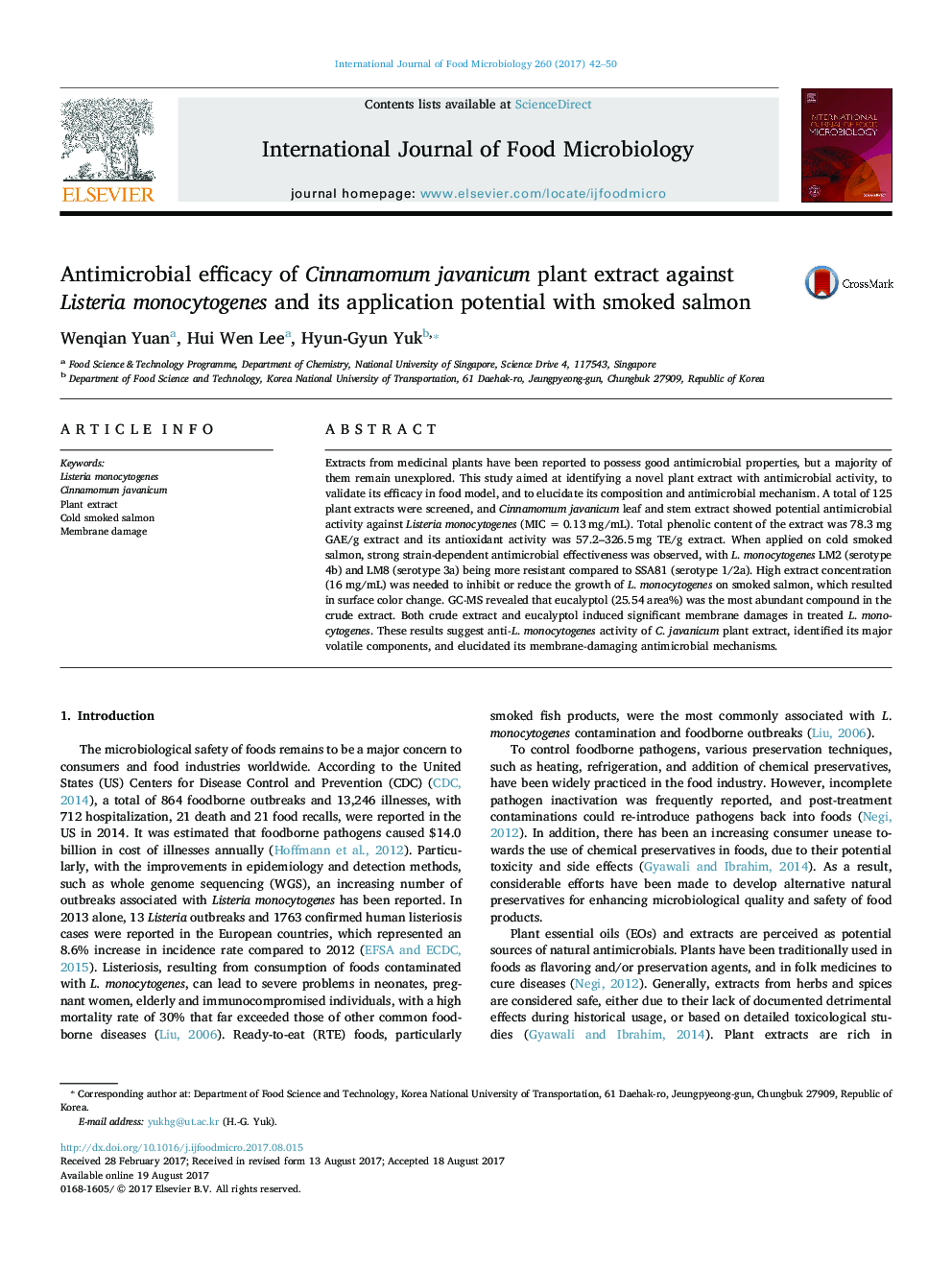| Article ID | Journal | Published Year | Pages | File Type |
|---|---|---|---|---|
| 5740610 | International Journal of Food Microbiology | 2017 | 9 Pages |
â¢We screened 125 plant extracts for antimicrobial activity.â¢Cinnamomum javanicum extract has anti-Listeria monocytogenes activity.â¢Extract showed strain-dependent anti-L. monocytogenes activity on smoked salmon.â¢Eucalyptol was identified as the major volatile compound in C. javanicum extract.â¢Both eucalyptol and extract induced membrane damages in treated L. monocytogenes.
Extracts from medicinal plants have been reported to possess good antimicrobial properties, but a majority of them remain unexplored. This study aimed at identifying a novel plant extract with antimicrobial activity, to validate its efficacy in food model, and to elucidate its composition and antimicrobial mechanism. A total of 125 plant extracts were screened, and Cinnamomum javanicum leaf and stem extract showed potential antimicrobial activity against Listeria monocytogenes (MICÂ =Â 0.13Â mg/mL). Total phenolic content of the extract was 78.3Â mg GAE/g extract and its antioxidant activity was 57.2-326.5Â mg TE/g extract. When applied on cold smoked salmon, strong strain-dependent antimicrobial effectiveness was observed, with L. monocytogenes LM2 (serotype 4b) and LM8 (serotype 3a) being more resistant compared to SSA81 (serotype 1/2a). High extract concentration (16Â mg/mL) was needed to inhibit or reduce the growth of L. monocytogenes on smoked salmon, which resulted in surface color change. GC-MS revealed that eucalyptol (25.54 area%) was the most abundant compound in the crude extract. Both crude extract and eucalyptol induced significant membrane damages in treated L. monocytogenes. These results suggest anti-L. monocytogenes activity of C. javanicum plant extract, identified its major volatile components, and elucidated its membrane-damaging antimicrobial mechanisms.
